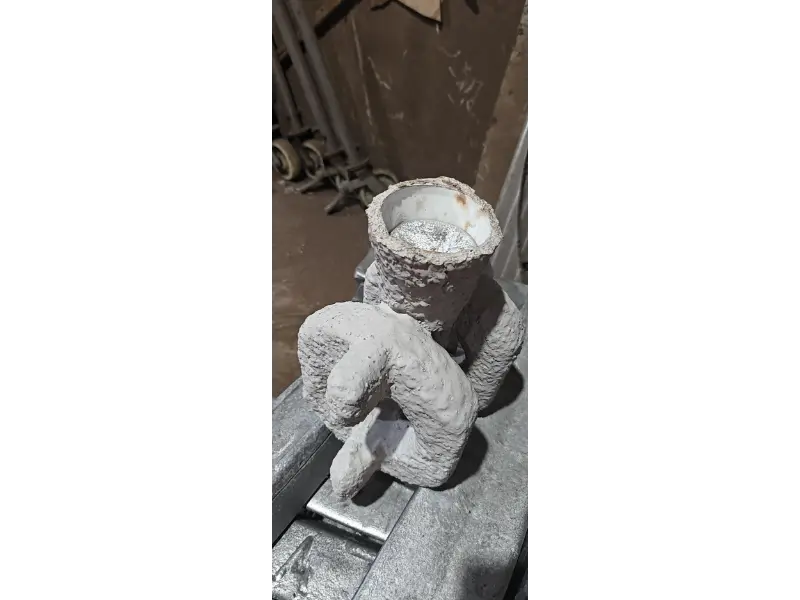Aluminum Alloy Investment Casting | Precision Solutions for High-Performance Applications
Aluminum alloy investment casting is a sophisticated manufacturing process that plays a pivotal role in producing intricate and high-performance components for various industries, including aerospace, automotive, and industrial machinery. This article delves into the significance of aluminum investment casting, the types of aluminum alloys used, and the benefits of choosing Welleshaft as your trusted global supplier and contract manufacturer for investment casting needs.
What is Aluminum Alloy Investment Casting?
Investment casting, often referred to as lost-wax casting, produces metal parts by creating a wax model of the component, coating it in a ceramic shell, and then melting the wax away to leave a mold. Manufacturers frequently use aluminum alloys in this process due to their favorable properties, including being lightweight, high-strength, and resistant to corrosion.
Key Benefits of Aluminum Alloy Investment Casting
- Precision: Investment casting allows for the production of complex geometries with tight tolerances, making it suitable for applications that require high precision.
- Material Efficiency: This method minimizes material waste compared to traditional casting techniques, leading to more cost-effective production.
- Versatile Design Options: The investment casting process can produce intricate designs and features, making it ideal for custom components.
- Superior Surface Finish: Investment casting yields a smooth surface finish, often reducing the need for additional machining operations.
Types of Aluminum Used in Investment Casting
1. Aluminum Alloy A356
Manufacturers commonly use aluminum alloy A356 for investment casting. Known for its excellent casting characteristics and mechanical properties, A356 offers:
- Good corrosion resistance
- High strength-to-weight ratio
- Excellent weldability
A356 is often used in aerospace and automotive applications where performance is critical.
2. Aluminum Alloy A380
Aluminum alloy A380 is another popular choice for investment casting. It provides superior fluidity and is ideal for complex shapes. Key features include:
- Excellent mechanical properties
- Good corrosion resistance
- High thermal conductivity
A380 is frequently used in applications such as automotive components and electronic housings.
3. Aluminum Alloy A413
Aluminum alloy A413 is known for its high fluidity and is commonly used for intricate designs that require thin walls. Its characteristics include:
- Good casting properties
- Excellent corrosion resistance
- High tensile strength
A413 is suitable for applications where weight savings and structural integrity are essential.
What is the Best Aluminum Alloy for Investment Casting?
The best aluminum alloy for investment casting depends on the specific application and requirements. Experts often recommend A356 for its overall balance of strength, corrosion resistance, and ease of machining. However, for applications requiring complex shapes and excellent thermal properties, they may prefer A380.
Cast Aluminum Alloys List
Here are some common aluminum alloys used in investment casting:
- A356: Good all-around performance, ideal for aerospace and automotive applications.
- A380: High fluidity and excellent mechanical properties, commonly used for complex components.
- A413: Known for high fluidity and thin wall applications.
- A532: Excellent wear resistance, suitable for industrial applications.
- 7075: Known for high strength, used in aerospace applications.
What Are the 3 Basic Methods of Aluminum Alloy Castings?
The three primary methods of aluminum alloy casting include:
1. Sand Casting
Sand casting is a traditional casting method that involves creating a mold from sand. While it is cost-effective for small production runs, it lacks the precision and surface finish quality of investment casting.
2. Die Casting
Die casting involves forcing molten aluminum into a mold under high pressure. This method is suitable for large production runs but may not achieve the intricate designs that investment casting can provide.
3. Investment Casting
Investment casting, as previously described, offers high precision and is ideal for complex geometries. It is the preferred choice for many industries requiring high-quality aluminum components.
What is the Aluminum Alloy Used for Casting?
Aluminum alloys commonly used for casting include A356, A380, and A413, among others. These alloys are selected based on their mechanical properties, casting characteristics, and the specific requirements of the application.
What Kinds of Metallic Alloys Can Be Used in Investment Casting?
Investment casting can be performed with various metallic alloys, including:
- Aluminum Alloys: Such as A356, A380, and A413.
- Steel Alloys: Including carbon steel and stainless steel, often used in applications requiring higher strength.
- Nickel Alloys: Often utilized in high-temperature applications, such as turbine blades.
- Copper Alloys: Used for components requiring good electrical conductivity.
Welleshaft: Your Trusted Global Supplier for Aluminum Alloy Investment Casting
At Welleshaft, we understand the importance of quality and precision in aluminum alloy investment casting. With 20 years of experience in the industry, we have established ourselves as a leading global supplier and contract manufacturer.
Why Choose Welleshaft?
- Expertise in Investment Casting: Our skilled team has extensive knowledge of the investment casting process and its applications across various industries.
- Advanced Technology: We employ state-of-the-art manufacturing techniques to ensure the highest quality standards for our aluminum castings.
- Customized Solutions: We work closely with our clients to provide tailored solutions that meet their specific requirements, from design to production.
- Quality Assurance: Our commitment to quality is reflected in our rigorous testing and inspection processes, ensuring that every part meets the highest standards.
- Comprehensive Support: We offer end-to-end support, including design assistance, prototyping, and full-scale production.
Conclusion
Aluminum alloy investment casting is a vital process in the manufacturing of high-performance components across various industries. With its precision, versatility, and material efficiency, investment casting stands out as an excellent choice for complex geometries and high-quality parts.
When it comes to finding a reliable partner for your aluminum investment casting needs, look no further than Welleshaft. Our expertise and commitment to excellence ensure that you receive top-quality castings tailored to your specifications.
For more information about our aluminum alloy investment casting services or to discuss your specific requirements, please contact Welleshaft today. Together, we can achieve the precision and quality your projects demand.

